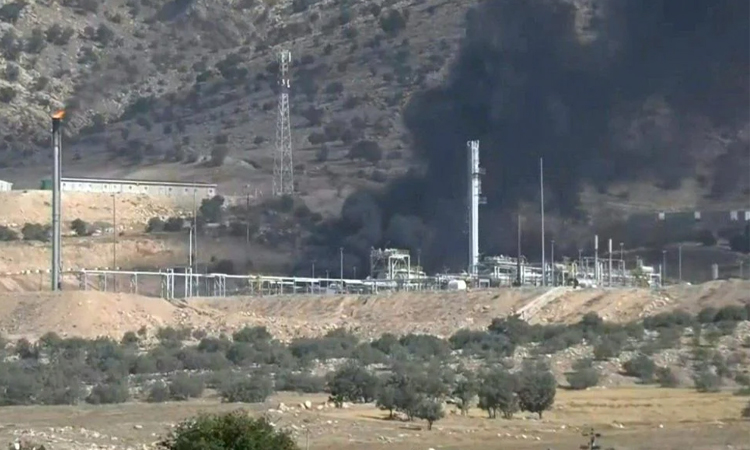News Flash

ARBIL, Iraq, July 17, 2025 (BSS/AFP) - Explosive-laden drones hit three oil fields in Iraq's autonomous Kurdistan region on Wednesday, Kurdish authorities said, a day after a similar attack halted operations at a facility run by a US company.
Production at two fields operated by the Norwegian group DNO ASA was temporarily suspended, the company said Wednesday, while an industry coalition to which it belongs reported some of its members were instituting production cuts equivalent to 200,000 barrels a day.
In the past few weeks, Kurdistan has seen a spate of unclaimed drone attacks, which have come as the regional government and the federal authorities in Baghdad wrangle over control of export revenues from the Kurdistan fields.
Five oil fields in the region have been hit in the space of a week.
Long plagued by conflict, Iraq frequently experiences such attacks, often linked to regional proxy struggles between Iran and the United States and its ally Israel.
The regional natural resources ministry said the latest attacks had caused "significant damage", and condemned them as acts of "terrorism".
Early Wednesday, "two explosive-laden drones attacked" the Peshkabir oil field, while another struck the Tawke field in Zakho district, Kurdistan's counterterrorism services said.
Both fields are operated by DNO ASA, which announced the suspension of operations following explosions, "one involving a small storage tank at Tawke and the other involving surface processing equipment at Peshkabir".
At 7:14 am (0414 GMT), another attack targeted an oil field operated by the US firm Hunt Oil in Duhok province, without causing casualties or damage.
Twelve hours later, another drone attacked the same field.
A similar drone attack on Tuesday forced US firm HKN Energy to suspend operations at the Sarsang field in Dohuk.
On Monday, two drones hit the Khurmala field, while another was shot down near the airport in the regional capital Arbil.
- Ex-paramilitaries blamed -
There has been no claim of responsibility for any of the past week's attacks, and Baghdad has promised an investigation to identify the culprits.
But a Kurdish official, who requested anonymity, blamed the recent attacks on the Popular Mobilization Forces (PMF) -- Hashed al-Shaabi in Arabic -- a coalition of pro-Iran former paramilitaries now integrated into the regular armed forces.
"We hold the Iraqi government responsible because they are funding the PMF, which is attacking the oil infrastructure," he told AFP.
Kurdish authorities previously accused the PMF for a drone attack near Arbil airport on July 3.
The attacks have come amid persistent tensions between the regional authorities and Baghdad over oil revenues, and legal disputes and technical problems have kept an export pipeline to Turkey shut since 2023.
The Association of the Petroleum Industry of Kurdistan (APIKUR) -- which represents international oil firms in the region, including DNO, HKN and Hunt -- condemned the attacks on its members' production sites.
The majority of its members, "including those not targeted, have announced suspension of production totaling over 200,000 barrels per day", it said in a statement.
The companies "are committed to resume oil production and sales as soon as possible", APIKUR spokesman Myles B. Caggins III said.
"We stand ready to put our oil into the Iraq-Trkiye Pipeline once agreement is reached between Baghdad, Erbil and the companies," he added.
Iraqi Kurdistan presents itself as a relative oasis of stability in a volatile Iraq, attracting foreign investors due to its close ties with the United States and European countries.